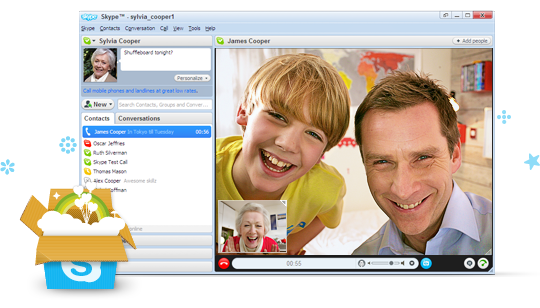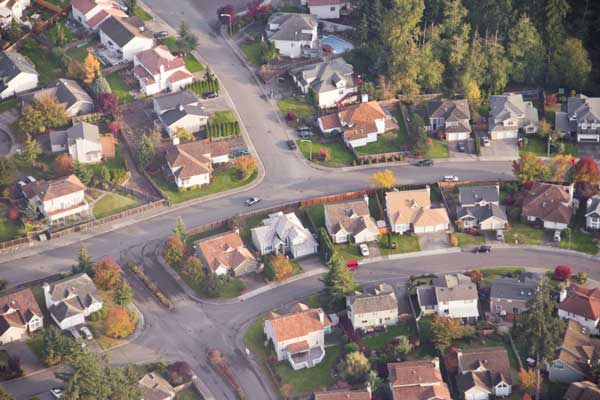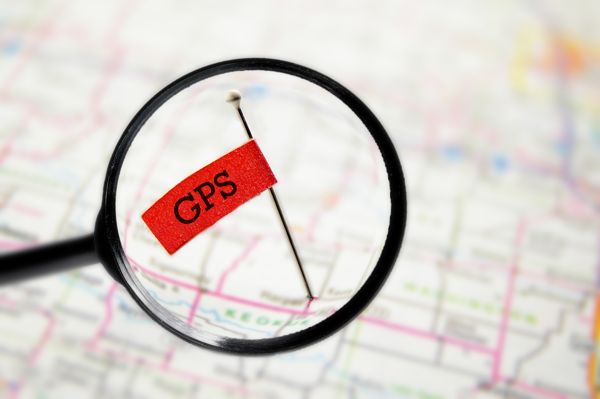The onslaught of digital duress may be stripping back the fabric of your family. It is no secret that in this age of digital everything, digital parenting has leapfrogged over so many other more traditional means of parenting. Although digital parenting is a necessary adaptation, it's important for families to strengthen communication before technology.
Read More »7 Safety Rules for Video Chatting
Picture your favorite person in the world. It could be your spouse, your child, a parent, or a family friend. If you could speak with this person right now, would you prefer a phone conversation or an in-person one?
Of course you'd rather see their face, their expressions, and their gestures. A phone call just doesn't compare. That's why almost 2 in 5 teens have used Skype, iChat, or GoogleTalk to video chat with others.
If your teen regularly uses a service like Skype, or if he has a social networking account (most social networks have video chatting capabilities on-site), teach them these Internet safety rules for video chatting online.
Sex Offender Monitoring Apps Every Parent Should Have
We already know that there are a plethora of online resources available to inform parents about the residence of sex offenders. With the integration of these registries and apps, parents can stay up-to-date on the sex offender registries.
Sex Offender Search App- This App is great for families looking for a new home. You can use the App to put in the address of a house you're interested in and a map will pop up, showing you if there are any sex offenders in the area. The same goes for your child's school; virtually anywhere in the US is available. You can also get alerts through emails and text if a new offender comes into your area.
Digital Parents Are Asking: Is the Video-Chat App Skype Safe?
What is Skype?
Skype is one of the most popular video chatting and communications platforms in the world. Microsoft owns the program, and it is a company that has brought many innovative technologies to the world over the years. Skype allows people to talk to each other from other ends of the world through video, audio and text chat.
Users can download the Skype program to their desktop computers, laptops, tablets or smartphones to enjoy the benefits. The program is free to download, and users have access to some great features upon registration. Additional features such as voice calls and texting are available for a small fee.
How is Skype Beneficial?
3 Fundamental Steps to Take in Digital Parenting
There is no use in trying to jump into digital parenting all at one time. Rather, a step-by-step approach is preferred and more successful over time. Following a set of steps allows your child and you to have a good understand with one another and hopefully work together to have a safe time on the Internet.
1. Have a Conversation With Your Child
Showing an interest in what your child is doing online is a great basic first step. You want to show them that you care about whatever the latest app is or perhaps what websites they like to visit. You may be surprised by how much your child is actually willing to share with you on this topic. It opens the door to deeper conversations about Internet safety.
Read More »Location Sharing in Facebook's Messenger App: The Basics
The launch of Facebook's Messenger App came with a whole lot of concern. Everyone seemed immediately worried about its safety as it has the ability to send your location along with every new message.
Questions and concerns about Facebook's location sharing feature and the safety of the feature have made waves across the media. The social media powerhouse even required that its mobile users either install the Messenger App, or give up using the Facebook private messaging feature altogether. The result: (even with clear evidence that it did indeed include your location in messenger by default) over 500 MILLION people downloaded it. Million.
Read More »How to Use Location Monitoring Without Being Creepy
As parents, it's only natural for you to worry about where your children are, who they are with, and what they are doing. However, it is just as important to respect their limitations and privacy. So how do you do both?
Nowadays, there are so many ways to use location monitoring that it could be overwhelming. It could be used to share your location on social media, find directions, book travel, and more. It's no wonder than many find location monitoring creepy! On the upside, since most people use location services nowadays, monitoring children can be easier and less-intrusive than it was before.
Recently, we wrote about why location monitoring your teens and tweens is not creepy. Put the idea into practice with these steps:
1. Have a discussion with your child.
Read More »Oversharing Online: Do Vacation Status Updates Put You at Risk With Burglars?
"I'm so excited!! The family and I are headed to Myrtle Beach for the next week. We finally got the car all packed up with beach gear galore. We'll be sure to post pics after :)"
We have all seen a post similar to this. In fact, you may be guilty of having posted something like this yourself! If you and your family are headed out on vacation sometime in the remaining weeks of summer, the worst thing that you can do is share this information online. While you can limit viewership of your social media to only those on your friends list, you still run the risk of them mentioning that they'll be going out with you or that you'll be away from home for an extended period of time.
Read More »Why It's Not Creepy To Monitor Your Teen's Locations
Location monitoring is a recent innovation, based on modern GPS technology. Parents can now use it to determine where their children are, particularly when they are in their teens. As a parent, you may be hesitant about using this impressive bit of technology on kids and teens. Perhaps you may think of it as an intrusion, or you may be afraid that they will be angry with you.
The fact is, however, that teenagers are still minors and that it is your perrogative to use whatever means you have at your disposal to monitor your teens. Teens are learning and growing during a time when they're given increasing amounts of responsibilities and it is natural for there to be some issues along the way.
Read More »What is Geotagging and Is It Safe for My Teens To Be Doing It?
You would never post your home address online or tell the world that your kids were home alone at that address, would you? Yet many of us are innocently and unknowingly doing just that, by geotagging.
Geotagging is a relatively new phenomenon in that age of smartphones and many teens and parents are unaware of exactly what it is and why it's dangerous. True privacy and safety are becoming ever more elusive and complex in the information age. Here's what you need to know about geotagging to protect your teen's privacy and safety online.
What is Geotagging?
Geotagging is a way of embedding location information into photos or posts made through social media sites, providing the exact coordinates of where a photo was snapped or a post was made (within 10 to 15 feet depending on the accuracy of your GPS chip). Ultimately, geotagging is not a safe practice for anyone for a myriad of reasons.
Read More »Live Offline: Tips to Live Away From the Internet
The beginning of summer brings with it more than warm weather; it also brings the summer break from school. This means that not only will the kids be sleeping in late, but once they wake up they will have a lot of free time on their hands and it's best to make it both fun and productive. Some kids will be destined for a couple of weeks of summer camp, some will enjoy a few educational day camps, and some will just be off!
Regardless of the situation your family finds itself in, many hours will have to be filled with some sort of activity. Altogether too often the kid's first choice will be electronic amusement like video games and particularly the Internet. While a little of this is alright, too much means a deficit in physical activity and not enough interaction with the family.
Read More »What Are Tech-Free Zones and Are They Right For My Family?
If you're finding that living in the age of digital parenting is a tough task, you are certainly not alone. Not only are you plugged into work and life at every moment of every day, but so, too, are your kids. Of course, it's great to be able to have answers to your questions and social interaction at the swipe of a security code, but some families are starting to explore the benefits that can be had from implementing tech-free zones within their homes and daily lives.
Of course, this begs the question: What are tech-free zones, anyway? It may sound counter-intuitive, since digital parenting is largely built around the idea of being able to connect and relate to your kids via today's technology, but Tech-Free Zones, aptly named, are places in families' lives where technology is simply not permitted.
Read More »4 Social Media Posting Tips to Keep You and Your Family Safe
Social media is the easiest way to connect and keep in touch with friends and relatives. It has changed the way we do business and interact in our personal lives. Most people have at least one social media account that they use to regularly “check into” places, like entertainment venues and restaurants, and post photos and status updates. Children use social media as a primary form of communication to keep in touch with their friends in real time.
But can posting to social media and “checking in” to location-aware sites inadvertently be giving away information to people who might have bad intentions, making you or your children easy targets for fraud, crime or predators?
Read More »Keep Kids Physically Active This Summer With ibitz
Yesterday we posted an article about educational, yet fun, apps that can help kids stay mentally active this summer. Of course, it is also crucial for parents to encourage children to continue to be active physically as well as mentally. With the prevalence of technology use among kids and teens, it's a valid concern for parents to worry that kids could waste the summer away sitting on the couch playing video games.
While technology use can contribute to lazy behaviors, it also has great potential to spark physical activity. Introducing: ibitz for kids! GeoPalz' ibitz is a wireless pedometer that incorporates video games into active play. Users are challenged with the task of taking steps to explore the galaxy through a rocket ship. The more they get moving, the more they are able to venture into space.
Read More »Dangers of the New Location-Sharing Facebook Feature: Nearby Friends
Facebook has recently launched a new location sharing feature called Nearby Friends. Naturally, the introduction of the new feature (and the general popularity of location-sharing within social media) is a bit disconcerting for parents of tweens and teens. Sharing locations can increase the dangers of cyberbullying and stalking by strangers and "friends" alike.
What is Nearby Friends?
The basic idea of the Nearby Friends feature is to further connect people within the network. Similar to other apps with location tracking systems like FourSquare, Connect, and SocialRadar, Nearby Friends pulls information about the locations of other Facebook friends who have enabled the feature and displays where users are on a map. If there are a certain number of friends located in a user's surrounding area, they will receive a notification about which friends are in the area and are encouraged to view their locations.
Read More »5 Methods to Limit Screen Time in Your Home
Let's face it: most of us spend too much time in front of screens. The Kaiser Family Foundation reports that kids and teens ages 8-18 spend about 7.5 hours using entertainment media daily. Kids and teens aren't the only age groups that spend too much time in front of screens! In 2013, Advertising Age magazine concluded that adults in the U.S. spend approximately two and a half hours a day online, nearly the same amount of time on mobile devices and smartphones, and another four and a half hours watching TV.
While, at best, screens can be educational, entertaining, and convenient, there's a fine line that exists between screens adding value to our lives and where they begin to negatively impact our health. The American Academy of Pediatrics recommends that no one should spend more than 1 or 2 hours in front of a screen daily. Excessive screen time has been
Read More »Wearable Technology for Kids Coming From LeapFrog
This article was originally published by CNN and is written by Doug Gross.
The wearable technology movement is in full effect, and exercise-based activity trackers lead the way. Now, it's becoming child's play.
Leapfrog, the maker of education-oriented tablets and apps for children, has unveiled LeapBand, a wearable activity tracker designed with kids in mind.
Selling for $40 and designed for children ages 4-7, the LeapBand "encourages active play and healthy habits" with 50 different games and other challenges. It will be available in August, the company said in a written release.
Read More »Understanding the Location-Tracking FourSquare App
What is FourSquare?
FourSquare is a free location-based social networking app for smartphones where people can see what is going on around them and find their friends' locations.
How can the app be used?
Users can “check in” to FourSquare when they go somewhere, and the GPS coordinates are recorded. It is like a game of sorts, with the ability to earn points and badges for checking in. If enough points are earned, a user is crowned the “mayor” of an area – until someone else earns more. Some businesses also offer discounts to FourSquare users for checking in at their location.
6 Video Chatting Safety Rules for Teens and Tweens
The advent of video chatting tools like Skype, ooVoo, Omegle, and Chatroulette have caused parents some concern about their teens' safety. Many video chatting sites encourage anonymous chatting among strangers, which can further elevate these concerns. Here are some ways to ensure that your teen is safely video chatting.
1.) Most experts will recommend that your teenager does not have free access to the Internet at all times. You may want to collect their laptops and phones at night, permitting video chatting only during specific times.
2.) It is important to instruct your children never to say anything on video chat that they would not want made public. Any conversation can be saved and published elsewhere. Tweens and teens need to know early on that any interaction made on the Internet can impact their futures.
Read More »Everything You Need to Know About Smart Watches
No one ever said that raising kids was easy. Raising kids in the digital age presents a unique set of concerns and challenges that your parents never had to worry about. However, what you don't hear often is how technology can actually help keep your kids safe and sound. The advent of smartphones, GPS, and widespread Internet access need not only be a source of fear for concerned parents. These technologies can be used for parental monitoring and peace of mind. There are many examples that can highlight this, but perhaps one of the most exciting examples of this concept is the smart watch.
Smart watches are the latest trend in mobile and wearable technology. New smart watches are in development from some of the biggest names in the industry. This is an exciting and cutting edge trend, but what value does it have for parents? Smart watches with built in GPS and cellular functionality present a great opportunity for parental monitoring.
Read More »




















